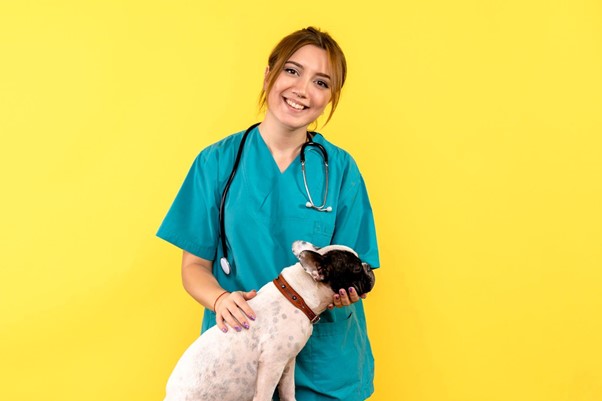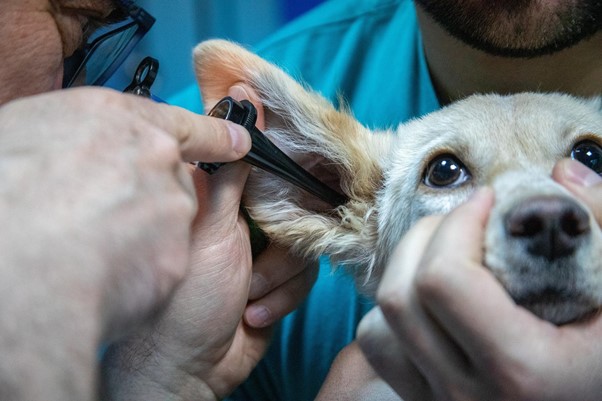Keep Your Fido Healthy and Safe: Bring Them To The Vet Regularly
- Last updated on January 26, 2023
- By: Caroline Stowe
As a pet parent, you want to do everything you can to keep your four-legged family member happy and healthy. One of the best ways of achieving this is by taking them for regular vet check-ups. Not only will these visits ensure that your pup is in good health, but they also provide an opportunity to detect potential issues before they become serious.
In this guide, we’ll explain why regular vet visits are important for dogs, how often you should be taking your furry friend to the vet, what to expect during a vet visit, and how you can prepare for a stress-free visit with your Fido.
Table of Contents
The Importance of Regular Vet Check-Ups for Your Dog

Taking your dog for regular vet check-ups is essential to their health and well-being. However, it is one of the most overlooked aspects of pet ownership. Not only can a professional veterinarian identify, diagnose, and treat existing medical issues, but they can also detect potential health problems before they become life-threatening.
At least once a year, your pup should have an in-depth examination by an experienced veterinarian who can identify potential health issues, from infectious diseases and parasites to potential organ dysfunction.
Routine check-ups with a veterinarian are the best way to identify subtle changes in behavior or changes in their physical appearance, which can help catch things before they become more serious. Furthermore, it’s a great opportunity for you to make sure your pet is up-to-date on all their vaccines and provide them with preventative care.
Additionally, it’s also a great chance for you to ask questions about their physical health and nutrition. Your vet will be more than happy to address any of your concerns and perform a comprehensive examination in order to pinpoint any problems that may be affecting your pup. He or she is the best source of information and can give you valuable advice about diet, exercise, and training tips tailored to your pet’s needs.
How often should I take my dog to the vet ?
Deciding how often to take your dog to the vet depends on several factors, including their age, health, lifestyle, and dietary needs. Generally speaking, healthy adult dogs should visit the vet at least once a year for vaccinations and annual wellness checkup in order to maintain optimal health.
Puppies below 16 weeks will require more frequent visits – approximately every 3 to 4 weeks – so that they stay current with vaccinations and receive monthly well-being exams.
For senior dogs (over 8 years), twice-a-year checkups are usually recommended, as any age-related concerns or issues can be addressed more effectively when caught early.
Of course, any time your pup is exhibiting uncharacteristic behavior or not feeling well you should seek veterinary care sooner than one of their regularly scheduled check-ups! Regular veterinary care is an important part of keeping your pet healthy so be sure you’re proactively scheduling those appointments!

What To Expect During A Vet Visit
A visit to the vet is an important part of caring for your pet, and knowing what to expect can help make it a smooth experience. The length of the visit will depend on the reason for your visit, with routine checkups running about 30 minutes and appointments for more involved treatments taking up to an hour or more.
During each visit, the vet will usually take time to get to know you and your pet: they may ask you various questions about your pet’s lifestyle, diet, behavior, or medical history in order to gain further insight into their health.
They will get your pup’s temperature taken, be weighed, and perform a physical examination on your four-legged friend to check his vital signs such as heart rate and respiration rate. The vet will also check the eyes, ears, and teeth, as well as feel the body for any lumps or bumps during the process.
And of course, if there is an illness that needs to be managed (e.g., diabetes), they will provide a treatment plan for tracking and managing it in the long run. It’s important to inform your vet about any chronic conditions your canine companion is dealing with in order for them to provide an accurate diagnosis.
Depending on why you are visiting the vet, they may recommend necessary vaccinations, and perform additional tests or diagnostics such as bloodwork or imaging. Your vet will pay particular attention to any areas of concern, answer questions, and provide advice on nutrition or exercise.
Always listen to what your veterinarian suggests as they know best when it comes to the well-being of your dog. You should also plan enough time after the visit so that you can take notes or ask additional questions if needed and remember that it’s ok if you need some extra time.
How to Prepare for a Stress-Free Vet Visit with Your Dog
Visiting the vet doesn’t have to be a stressful experience for both you and your pup. Here are a few things you can do to make the experience more pleasant for both you and Fido.
- First of all, get your dog used to being handled by different people so that they're not scared when someone new tries to touch them. You can do this by frequently petting them all over their body, including their paws, ears, and tail.
- Consistently brush and inspect your dog's fur between visits to keep them used to being handled and identify any potential issues right away.
- You should also get them used to being in a carrier or crate so that they're not anxious about being put in one when it's time for their vet visit.
- Get ready before the appointment - with a bit of forethought, you can make sure that everyone has an enjoyable visit. Put together a journal where you log all your pet's vital information such as health information, including symptoms and any changes in behavior or diet that may have recently occurred.
- Gather all of the necessary items - leash, muzzle if needed, medical records, etc., and store them in a convenient place so they're ready to go.
- Being familiar with your vet's office also helps reduce stress during visits. If the vet hasn't been to before, take a trial run: show up and look around the clinic so your pup knows what to expect.
- Before the appointment arrives, take your dog on a calming walk or offer them some interactive playtime - being calm beforehand will allow them to remain relaxed during the visit.
- Feed them an hour before heading out so their stomach is full when they get to the vet’s office.
- Be sure to bring any necessary paperwork plus food, water, treats, and toys to keep your pup entertained if needed. Remember to bring proof of identification and prior vaccinations.
- Give yourself plenty of time – arriving at least 15 minutes early will help you reduce anxiety and make sure that any paperwork is done before the appointment.
- When at the vet clinic, remember to remain positive and assure your pet that everything is fine.
- Additionally, reward good behavior with treats so that your pup has something positive associated with going to the vet!
With these tips and tricks, a vet visit with your dog should go smoothly and end on a stress-free note.
Check the video below and learn how to prepare your dog for a vet visit.
Conclusion
Routine vet visits are an important part of being a responsible dog owner. They are essential for monitoring your pup’s health and well-being; providing an opportunity for your vet to keep tabs on your dog’s weight, nutrition, behavior, and overall health.
It’s best to catch any health issues early on so that you can start treatment right away – this will help reduce financial costs as well as ease any pain and suffering your pooch may experience should their condition worsen over time.
So what are you waiting for? Schedule an appointment with your veterinarian today and ensure that you’re providing the best care possible for your furry friend!
-
Author: Caroline Stowe
- Updated on January 26, 2023
Disclaimer: This article doesn’t intend to replace professional veterinary advice, nor should it be used as a substitute for veterinary services, diagnosis, or treatment. The content on this website, including information and opinions expressed herein, are intended for general informational purposes only. In case you have concerns or questions regarding your dog’s health and diet requirements, please consult your veterinarian before doing anything that might affect it.
DogPetGuide.com and the writer are not responsible or liable for any damage, liability, costs, or claims arising from any possible consequences of the reader’s action after reading this article.




